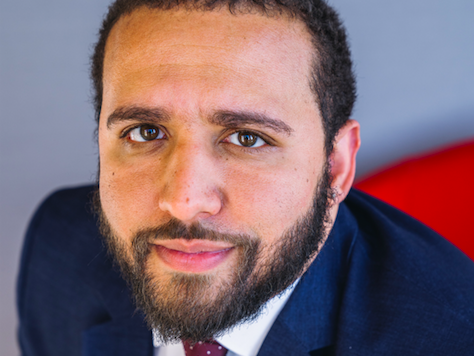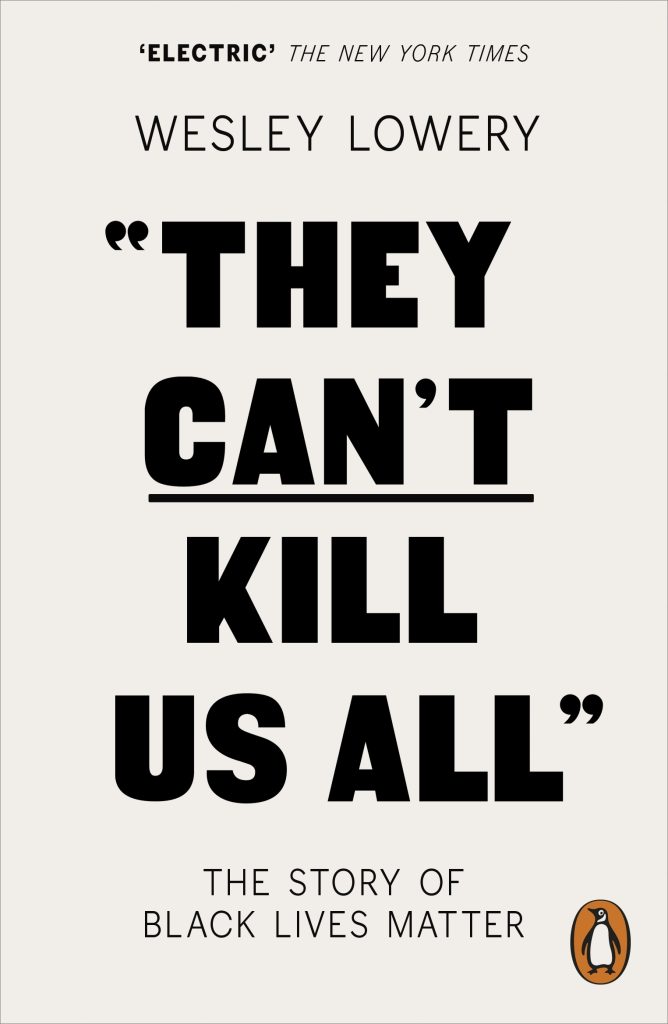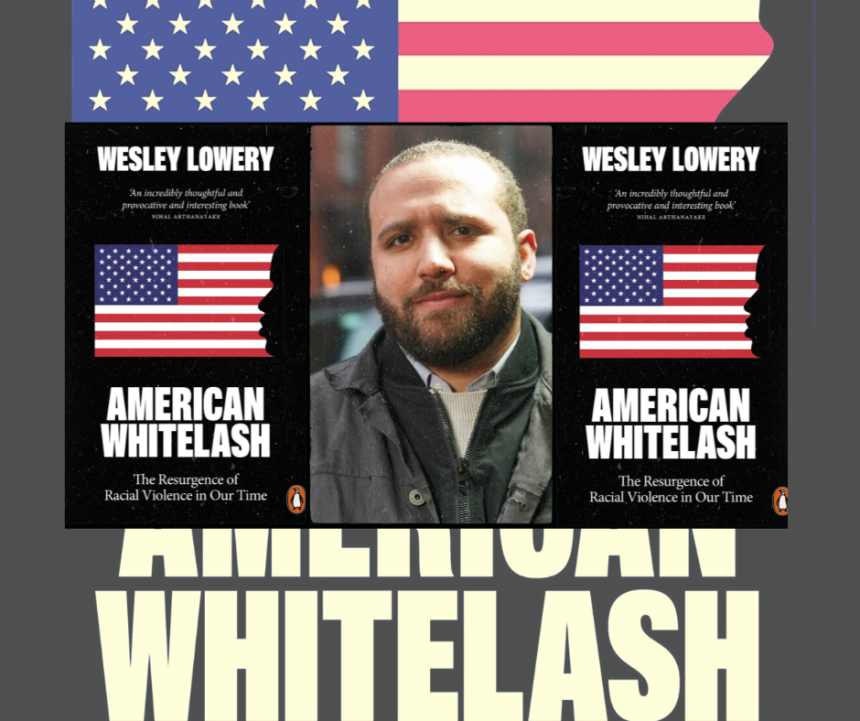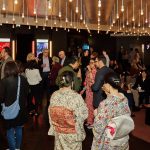We caught up with Wesley Lowery at Adelaide Writers Week 2025.
His latest book American Whitelash came out in June 2023 but its message is only becoming more urgent. Lowery is an American journalist who serves as an associate professor of investigative journalism at American University. He previously worked at both CBS News and The Washington Post, and he was a lead on the Post’s “Fatal Force” project, that won the Pulitzer Prize for National Reporting in 2016.
American Whitelash is an expansion and a continuation of that work.
In 2008, Barack Obama’s historic victory was heralded as a turning point for the USA. And so it would be – just not in the way that was hoped. The election of the nation’s first Black president fanned long-burning embers of white supremacy, igniting a new and frightening phase in a continuous historical cycle of racial progress and white backlash.
In American Whitelash, Lowery charts the return of this blood-stained trend, showing how the forces of white power retaliated against Obama’s victory – and both profited from, and helped to propel, the rise of Donald Trump, as well as in response the largest sustained protest movement in the US since the Civil Rights era.
Interweaving deep historical analysis with interviews with both victims and perpetrators of violence, Lowery uncovers how this vicious cycle is entering into ever more perilous territory, and how the country still might find a route of escape.
And so Irresistible found out what he thinks we should do next, and the impression that has been made on him during his first visit to Australia.

So it’s your first time in Australia? What do you think?
Adelaide is lovely, the people have been lovely, the weather is great. I’ve had a really good time.
American Whitewash came out June 2023. How would you compare its reception overseas and at home?
In my experience, there’s always intense interest overseas about American history and American racism. I’ve had significant reception in places like London and Australia. That’s not to say that the book hasn’t been well received in the US: it has been. It’s made bestseller lists and had good reviews. I write as if no-one is ever going to read my books, so just a few readers for me is great!
So often, in America, there are so many people talking about these issues, it can be a very crowded space. But once you get out internationally, you have a lot of people who have been watching what’s happening in the United States, and seeing how what’s happening in their own countries might be similar. They’ve been dying to have that conversation with someone and they really want to talk about it. I always have really enriching conversations and experiences with international audiences.
What do you think people are trying to find out in countries outside the U.S.?
There is an intense international interest to try to understand how we got to where we are, and does that explain what’s happening in other countries. A lot of the questions are around ‘You’ve just lived through what we’re about to live through- what does that mean and what does it look like?’ I think there’s also some questions about hope, ‘If you’re a couple of years ahead of us, do you have any insight about how we get out of this, what do we do, how do we move?’
It’s so interesting to see what different audiences are interested in, what they seize upon. We’ve been having these conversations so intensely in the USA. It’s about what are the lessons we’ve learned that we can we export, for those of us who care about free speech, and multicultural and multiracial societies. It’s hard for everyone.
It can feel like the public space for learning and debate is shrinking. Have you noticed a change in the tone of the questions you are asked?
I have noticed that people used to show up to my events to debate me or ask questions. Very often in an audience you might have had someone who read the book and hated the book. That person showed up and asked a question. Today, I actually think it’s more segregated, it’s more siloed. The audience who are showing up to my talks are probably now more predisposed to agree with me, or are used to hearing someone talk in the way that I do.
Not that long ago, the audience was probably more ideologically diverse. Right now, I’m not sure that there’s anyone in my audience that I could trigger. I don’t think that’s a great thing. It does makes for kinder questions, and more compliments afterwards, but I do think part of being a writer is about being in conversation with your audience. It’s about being accountable to them and being able to navigate the hard questions. I’m not offended if someone if offended. It’s my job to be able to take their question and talk to them and deal with it. I enjoy that. I see less of that kind of dynamic right now, because the audience is more preselected. We consume different media, we read different books. We watch different TV and listen to different podcasts. I rarely now get to interact with a hostile audience.
Can you see that reduction in, say, porosity between different kinds of groups?
Absolutely. We have conversations among ourselves. We more uncomfortable now than before to interact with people that are different to ourselves. We live our lives with people who aren’t very different to us in any particular or meaningful way. People who talk differently, have different politics, say things that are offensive to us or weird to us, don’t come into our orbits. We have to understand that for many people who consider themselves to be liberal minded, all that matters to them is to be right. But being right is not the same thing as being persuasive, being friendly, it’s not the same thing as being something that people want to follow. We need to develop other ways to think.
How do you think we can bring people together again?
We talk about the idea of how do we teach people, hold people accountable, navigate things together that are difficult. We can’t do any of that if we’re not in community with each other. We can’t do any of that if we keep everyone who is different to us at arms length. Different doesn’t often mean race or gender or ethnicity, what’s different is often about what people believe. We don’t have to compromise our morals or our values, we don’t have to not be clear about what we believe or what our red lines are. But it does mean actually seeing the humanity in different types of people, and wanting to build a world that’s welcoming to all of them. That means being in community with each other.

Community means different things to different people. What do you mean when you say it? Can books like yours build community?
I wish that books would be the answer, but I don’t think books are going to fix all this. I do think we’re in a moment when physical space is important. Coming out of the pandemic, I feel it’s something to do with what does it mean to be together, and gather together. It’s a lot easier to be a jerk to someone on the internet, or in a comments section, than to do so in front of them. Talking to someone who’s not present to defend themselves makes all of us 10% more of a jerk than we would be otherwise. Having the accountability around saying something to someone’s face, looking them in their eyes and seeing their humanity, changes things. I’m very interested in what it can look like for us to create and sustain shared spaces for us to learn, grow and debate together. There’s no town square anymore. Social media and the internet has taken over the town square, but because of the way the algorithms work, we’re only interacting with people who already agree with us. So it’s not a town square. The thing about a town square is that everyone gets to show up. Not just the people you agree with. In an actual town square the most compelling people or views get the most followers, versus the siloing we see when we all exist in separate town squares.
When we picture a town square, we can imagine a massive dance class. Do you think that salsa classes could be the answer to everything?
Why not. I love a dance class.
It’s about collective activity. How can we build that?
What are politics? Politics is supposed to be collective efforts to solve collective problems. Right now, we can’t even agree on what the collective problems are, so how can we get to solving them? We’re incapable of agreeing, so we can’t take steps to find collective solutions. If we can find a way to be less siloed, less of ‘This is my enemy, my team, my tribe.’ and more of ‘This is the 60-70% we agree on lets take some steps together,’ we can start to make a difference.
It sounds like you want people to really get to know their neighbours.
We have to start at a local level to get to the national and international level. In our community, how can we make it better. If we disagree on 90%, let’s focus on the 10% that we do agree on, and fix something.
Like a small win.
Right. Now we have a shared victory, we’ve done something hard, we can communicate. Each step in partnership will make us more empathetic towards each other. There’s a real crisis of empathy.
We’ve just had the crisis of the pandemic, and crises often being people and society together, building empathy with the friendships forged in the trenches. Covid seems to have had the opposite effect.
It absolutely went the other way. It made us all more insular, we lost our human contact. It made us less forgiving. It has a lot to answer for.
Was it a case of bad timing? It was an isolating crisis on top of a world that was already more individualised.
Exactly. We all experienced the pandemic as an individual. It put us all in our homes with our neuroses. We forgot what it was like to be around people that are different to us.
At Irresistible we try and build common ground through the arts and festivals and events. What are the mediums through which you think we’ll find each other?
It’s about finding spaces where we still have common ground. When I go to a basketball game, we’re all rooting for the same team. I don’t know the guy next to me, what his politics or his beliefs are. But if there’s a fire I want him and his wife to get out, as much as I want me and my brother to get out. I think if we can create more shared spaces in art, music, sports, and communities that are not sorted politically, we will humanise each other.

American politics seems to be barrelling towards turning people against each other, and setting the stage for real conflicts. It’s hard to see what the deeper strategy or point to it all is? What do you think are the real drivers in the minds of the people that hold power?
I do think there is a true Christian national ideology, that really believes in God, Trump, Country and the Bible. It has almost a religious fervour to it and that is real.
And then I think for people like Trump and Musk, it’s about the consolidation of power and their own advantage, they believe in themselves. They are loyal to that above all. Almost every step that has been taken by this administration so far has been about consolidating power and centralising it in the Executive, and taking action that further solidifies Trump as the leader of his political movement. It’s throwing red meat to his follower, and doing things that may not be policy- wise, but are popular. Trump has been remarkable efficient at that. I think the aim is to move quickly, break things, and consolidate as much power as possible, at which point there’s a real question about will he be able to be removed from office? Will he consent to another election, and if he loses will he leave? Will he so build his following that he is undefeatable in a democracy? Will he push his congressional majorities up so much that they can have a constitutional convention? So much of the Trump platform and program right now is about getting more power for Trump.
Do you think they see race division as a building block of that strategy?
Absolutely. Because I believe they believe they can win. You have to remember that the majority of white Americans believe that they are a discriminated against minority. That they are the ones who face discrimination. Trump understands that a pathway to an electoral majority is by speaking to disaffected white Americans. That is the easiest path to him. It aligns with the views of so many of his followers. That’s not to say that his coalition doesn’t have some Black and Hispanic Americans in it. But in America, we have one extremely racially diverse party, and one which is much more monochromatic.
And do you feel like the majority of American people want this?
I think Trump believes being brash, offensive and impolitic speaks to a majority of Americans. And, look, he’s been right. People knew what they were getting. There was this belief the first time that Trump was elected that people had been tricked, they didn’t know what it was, there was no way the electorate wanted that. Now there’s no doubt that this is what the electorate chose. They knew what they were signing up for.

Have you had a chance to investigate Australian politics and our upcoming election much?
I’m no expert on Australian politics, but it is very interesting to me from what I’ve picked up on, in the way that Dutton has emulated Trump stylistically. Things like not standing in front of the Aboriginal flag, the culture wars, the focus on working from home, these kind of things. It’s a very American type of politics that we’ve seen spreading around the world. Bolsonaro in Brazil, we’ve seen it in European countries like France. In British politics it’s been going on for a while. It’s unsurprising to me that in this hyper-globalised world, where immigration and migration are top-tier issues, where everyone feels victimised, where everyone feels lonely and isolated after the pandemic, that Hyper-individualistic, and populist rhetoric and behaviour would be seen as the pathway to victory. Dutton might also be right. I’m not surprised to see him engage that way. He’s not the first to emulate Trump, and he certainly won’t be the last.
Back to your books, is there anything else you’re working on?
I am working on another book. It’s very very early, but it’s something I’m working on with my Dad. It’s a project about our family’s history, and how our story fits on to a bigger broader American story. It’s been fun, but I haven’t told many people about it yet, as once you tell people you have to finish it!
So you might be coming back to Australia with this new book then?
I would love to come back again. The flight is a little brutal but I’d love to. I haven’t really switched my times zones while I’ve been here – I’ve been up at 1am every day. I’ll switch strategy next time with my sleeping patterns.
And finally, what would you say to young people who are disheartened by the state of the world and their leaders today?
Every generation gets to build the world they want to live in. Adults screw stuff up until it is the next generations turn. If I could go back in years myself, I would read more books and be more engaged at a younger age. I would really pay attention. Whether the society we live in is cruel or kind to our friends, whether it is economically prosperous or depressed, whether the planet is drastically warming or relatively stabilised, is based on public policy and decisions. Unfortunately, it is true that in the United States, and I suspect in Australia and many other countries, people opt out and don’t participate, particularly at a local level. But because of that it’s possible to have a big impact at a local level if you do get involved. One student, or classroom, or set of people who decide they want to petition their city council or state lawmakers, actually has the ability to make a difference. And so, for young people I always encourage them to find something they’re passionate about and dive into it. It’s too easy to say ‘These are other people’s problems, it’s too difficult, let the adults deal with it.’ The adults are the ones who screwed this up. It’s time for the young people to step up and do what they’re going to do.










